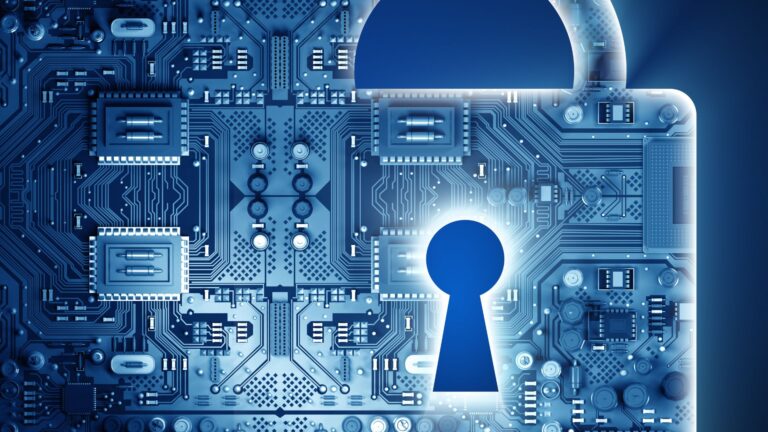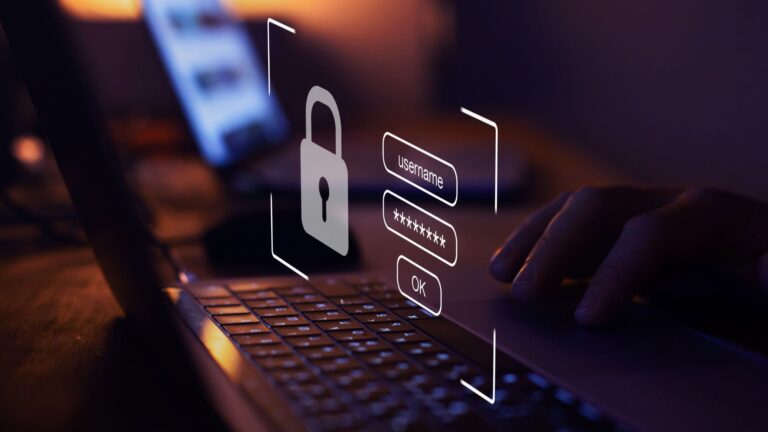In today’s digital landscape, cybersecurity has become the backbone of every successful technology operation. Whether you’re a developer writing code at 2 AM, an IT professional managing enterprise systems, or part of a DevOps team deploying applications, your daily habits can make the difference between robust security and devastating breaches.
The statistics are sobering: cyberattacks occur every 39 seconds, and the average cost of a data breach reached $4.45 million in 2023. Yet many tech professionals still treat cybersecurity as an afterthought rather than a fundamental part of their workflow. This mindset needs to change.
Building strong cybersecurity habits isn’t just about following company policies; it’s about developing a security-first mindset that protects both personal and professional data. Let’s explore eight essential habits that every tech professional should adopt to create a more secure digital environment.

1. Implement Strong Password Management and Multi-Factor Authentication
The foundation of cybersecurity habits for developers and IT professionals starts with robust authentication practices. Password reuse remains one of the most common security vulnerabilities, yet it’s entirely preventable with the right habits.
Create unique, complex passwords for every account and service you use. A strong password should contain at least 12 characters, combining uppercase and lowercase letters, numbers, and special characters. However, remembering dozens of complex passwords isn’t realistic, which is where password managers become invaluable.
Multi-factor authentication (MFA) adds an essential second layer of protection. Even if your password gets compromised, MFA significantly reduces the risk of unauthorized access. This is particularly crucial for cybersecurity habits for cloud engineers and network administrators who often have elevated system privileges.
The challenge here is convenience versus security. Many professionals resist MFA because it adds steps to their workflow. However, the few extra seconds spent on authentication pale in comparison to the hours or days required to recover from a security incident.
2. Keep Software and Systems Updated Regularly
Cybersecurity habits for software engineers and DevOps teams must include consistent update management. Security patches exist for a reason: they fix known vulnerabilities that attackers actively exploit. Delaying updates essentially leaves your door unlocked in a neighborhood full of burglars.
Establish automated update schedules for operating systems, development tools, and security software. For critical business applications, create a testing environment to verify updates before deploying them to production systems. This approach balances security with stability.
The complexity of modern tech stacks can make update management challenging. Applications often depend on multiple libraries, frameworks, and services, each with their own update cycles. However, cybersecurity habits for tech startups and established companies alike must prioritize keeping everything current, as outdated software represents one of the most common attack vectors.
3. Practice Secure Coding and Development Habits
For developers and software engineers, cybersecurity begins in the code itself. Secure coding practices should be as natural as proper indentation or commenting. This includes input validation, output encoding, proper error handling, and following the principle of least privilege.
Regularly review your code for common vulnerabilities like SQL injection, cross-site scripting (XSS), and insecure direct object references. Use static and dynamic analysis tools to identify potential security issues before they reach production. These cybersecurity habits for software engineers can prevent countless security incidents.
Code reviews should always include security considerations. Train your team to spot security anti-patterns and establish coding standards that prioritize security alongside functionality. Remember that fixing security issues in production costs significantly more than addressing them during development.
The pressure to deliver features quickly can tempt developers to cut corners on security. However, technical debt in security creates compound risks that can compromise entire systems. Cybersecurity habits for tech companies must include allocating time for secure development practices, even under tight deadlines.
4. Implement Network Security Best Practices
Network security forms a critical component of cybersecurity habits for network administrators and IT security managers. This includes proper firewall configuration, network segmentation, and monitoring for suspicious activity. Your network architecture should assume that breaches will occur and limit their potential impact.
Use VPNs for remote access and ensure all network communications use encrypted protocols. Implement network access controls that verify device identity and health before allowing connections. Regular network scanning and vulnerability assessments help identify potential weaknesses before attackers do.
The challenge with network security is balancing accessibility with protection. Users need seamless access to resources, but every convenience creates potential security gaps. Cybersecurity habits for IT professionals must find this balance through careful planning and user education.
5. Maintain Secure Backup and Recovery Procedures
Data protection through comprehensive backup strategies represents essential cybersecurity habits for data scientists and IT professionals. Your backup system should follow the 3-2-1 rule: three copies of important data, stored on two different types of media, with one copy stored offsite.
Test your backup and recovery procedures regularly. A backup system that hasn’t been tested is essentially useless when you need it most. Create detailed recovery procedures and ensure multiple team members understand the process. This knowledge shouldn’t exist in just one person’s head.
Consider the growing threat of ransomware attacks that specifically target backup systems. Implement air-gapped backups and immutable storage solutions where possible. Cybersecurity habits for DevOps teams should include automated backup verification and regular recovery drills.
The complexity of modern data environments can make comprehensive backups challenging. Applications often store data across multiple databases, file systems, and cloud services. However, thorough backup procedures remain non-negotiable for effective data protection.
6. Monitor Systems and Maintain Security Awareness
Continuous monitoring forms a crucial part of cybersecurity habits for IT security managers and tech teams. Implement logging and monitoring solutions that can detect suspicious activities, failed login attempts, and unusual system behavior. Security incidents often begin with subtle indicators that only become obvious in hindsight.
Establish baseline behavior patterns for your systems and users. Anomaly detection becomes much more effective when you understand what normal looks like. Create automated alerts for critical security events, but tune them carefully to avoid alert fatigue.
Stay informed about current threats and attack techniques. Subscribe to security newsletters, follow threat intelligence feeds, and participate in security communities. Cybersecurity habits for tech professionals must include ongoing education about the evolving threat landscape.
The challenge with monitoring is managing the volume of information and distinguishing real threats from false positives. However, effective monitoring often makes the difference between containing a minor incident and dealing with a major breach.
7. Secure Cloud Infrastructure and DevOps Pipelines
Modern cybersecurity habits for cloud engineers and DevOps teams must address the unique challenges of cloud environments and automated deployment pipelines. Cloud security requires understanding shared responsibility models and properly configuring access controls, encryption, and monitoring.
Implement infrastructure as code (IaC) practices that include security configurations from the start. Use automated security scanning in your CI/CD pipelines to catch vulnerabilities before deployment. Regularly audit cloud permissions and remove unnecessary access rights.
Container security presents particular challenges, as traditional security tools may not work effectively in containerized environments. Implement container scanning, runtime protection, and proper secrets management for containerized applications.
The rapid pace of cloud development can create security gaps if proper practices aren’t embedded in workflows. Cybersecurity habits for DevOps teams must include security as a core component of the development lifecycle, not an afterthought.
8. Conduct Regular Security Training and Incident Response Planning
Human error remains the leading cause of security incidents. Comprehensive security training should be part of cybersecurity habits for tech companies and individual professionals. Regular training sessions should cover current threats, company policies, and proper incident response procedures.
Develop and practice incident response plans before you need them. Create detailed playbooks for common scenarios like data breaches, malware infections, and account compromises. Regular tabletop exercises help teams understand their roles and identify gaps in procedures.
Foster a security culture where team members feel comfortable reporting potential security issues without fear of blame. Many incidents escalate because people hesitate to report suspicious activities or mistakes. Cybersecurity habits for IT professionals should emphasize learning from incidents rather than punishing mistakes.
The challenge with security training is keeping it engaging and relevant. Generic security awareness programs often fail to resonate with technical audiences. Tailor training content to specific roles and include hands-on exercises that demonstrate real-world attack scenarios.
The Cost of Neglecting Cybersecurity Habits
Failing to maintain proper cybersecurity habits can have devastating consequences. Data breaches can result in financial losses, legal liability, regulatory fines, and reputation damage. The average time to identify and contain a breach is 287 days, during which attackers can access sensitive information and cause extensive damage.
Consider the career implications as well. Security incidents can damage professional relationships, limit career opportunities, and create personal stress. In contrast, professionals known for strong security practices often find themselves in high demand as organizations prioritize cybersecurity expertise.
The complexity of modern technology environments means that security lapses can have far-reaching consequences. A vulnerability in one system can potentially compromise entire networks, affecting customers, partners, and business operations.
Building Long-Term Cybersecurity Success
Developing effective cybersecurity habits requires consistent effort and continuous learning. Start with one or two practices and gradually expand your security toolkit. Remember that cybersecurity is not a destination but an ongoing journey that evolves with changing technology and threats.
Document your security procedures and share knowledge with your team. Cybersecurity habits for tech startups and established companies benefit from collective expertise and shared responsibility. Create security champions within your organization who can help promote best practices.
Measure and track your security improvements. Regular security assessments, penetration testing, and vulnerability scans help validate the effectiveness of your cybersecurity habits and identify areas for improvement.
The investment in cybersecurity habits pays dividends in reduced risk, improved compliance, and peace of mind. As technology continues to evolve, professionals who master these fundamental security practices will be better positioned to adapt to new challenges and opportunities.
What are the most important cybersecurity habits for new developers?
New developers should prioritize strong password management with multi-factor authentication, secure coding practices including input validation, keeping development tools updated, and learning to identify common vulnerabilities like SQL injection and XSS. Regular code reviews focusing on security and using automated security scanning tools in development workflows are also essential habits to establish early in their careers.
How often should IT professionals update their cybersecurity knowledge?
IT professionals should engage with cybersecurity learning continuously, dedicating at least 2-3 hours weekly to security education. This includes following security news, attending monthly training sessions, participating in quarterly security exercises, and pursuing annual security certifications. The threat landscape evolves rapidly, making ongoing education essential for maintaining effective security practices.
What cybersecurity habits are most critical for remote tech teams?
Remote tech teams should emphasize VPN usage for all work connections, secure home network configurations, regular security awareness training tailored to remote work risks, encrypted communication tools for team collaboration, and established incident response procedures for distributed teams. Additionally, implementing zero-trust network access and regular security audits of remote work setups are crucial for distributed teams.
How can tech startups implement cybersecurity habits with limited resources?
Tech startups can focus on high-impact, low-cost cybersecurity habits including automated software updates, free password managers and MFA tools, basic security training using online resources, establishing simple backup procedures using cloud services, and implementing basic access controls. Many effective security practices require discipline and processes rather than expensive tools, making them accessible for startups with budget constraints.







